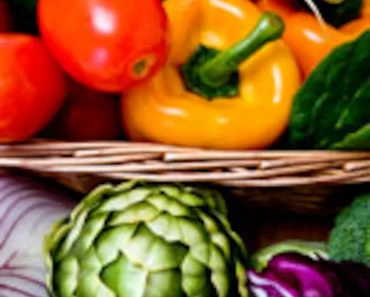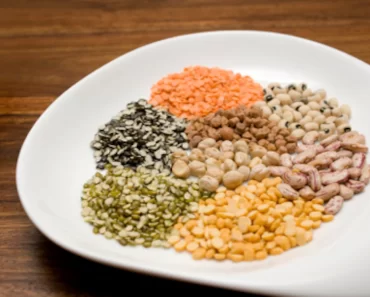The holidays are often synonymous with good food and good wine. While the mind rejoices in all these excesses, the body sometimes needs a little help to recover!
A for artichoke
When we think of digestion problems, we often think of the artichoke, and this, since Antiquity. A study published in the Alimentary Pharmacology & Therapeutics of 2003, confirmed the beneficial effect of an artichoke extract against dyspepsia, at a rate of 640 mg per day, in two doses. By dyspepsia, we mean a set of digestive symptoms more or less related to temporary disorders of the liver-gallbladder system. Symptoms that can be felt after a few hearty and well-watered meals. In fact, the leaves of the artichoke located on the stem, and not those that we usually eat, are used for the composition of preparations intended to stimulate the production of bile and relieve digestive disorders. This effect is attributed to the flavonoids contained in the artichoke. Extracts standardized to 5% cyranine at 320 mg to 640 mg, in one or two doses, are recommended. The artichoke is however contraindicated in case of obstruction of the bile ducts.
B for blueberry
Blueberries have been part of the therapeutic arsenal of certain traditional medicines for a long time. It would seem that blueberries could treat venous circulation disorders and relieve heavy legs… from having danced too much! Thus, 55 to 115 g of fresh blueberries or 80 to 160 mg of standardized fruit extracts, three times a day, would be effective.
Standardized extracts generally contain 25% pigments with antioxidant properties. In addition, blueberries could help reduce the risk of cardiovascular disease and cancer. So we put blueberries on pancakes, with cereal, in the bowl of oatmeal, with yogurt, in a milkshake, in a crisp, etc. A “remedy” for the aftermath of the day before!
C for turmeric
According to official sources such as the European Scientific Cooperative on Phytotherapy and the World Health Organization, turmeric can treat digestive disorders. Indian meal lovers can find a therapeutic dosage with 1.5 to 3 g (1/2 to 1 teaspoon) of turmeric powder. Otherwise, opt for an extract offering 60 to 200 mg of curcuminoids. However, if one suffers from gallstones or gastric ulcers, it would be best to consult a doctor before taking turmeric in a therapeutic dose.
G for royal jelly…
A milky substance produced by worker bees, royal jelly is considered by the Chinese to be an effective tonic for combating fatigue and overwork. However, few rigorous studies have verified its effectiveness in this regard. Additionally, royal jelly can cause severe allergic reactions in people with asthma or atopic eczema. Given its high allergenic potential, it is advisable to take only small amounts at the start of treatment and to increase them gradually. And also, to recover from “extended” evenings, we recover by going to bed earlier for a few evenings!
… and ginseng
One of the most widespread natural products on the planet, ginseng, is known to restore the capacity for physical work and intellectual concentration. This involves taking 200 mg of standardized extract one to three times a day. Standardized extracts contain 4-7% ginsenoside, the active ingredient in ginseng. Ginseng would also probably be effective in boosting the immune system: interesting, considering how many people (and microbes!) one encounters during the holiday season. However, care should be taken with foods (coffee, tea, chocolate), supplements (guarana), and drugs (Ritalin, Sudafed) with stimulating properties, as ginseng can increase their effects. H for the biological clock
Everyone knows that eating too much fat is bad for the heart, but did you know that it influences our biological rhythm? The functioning of our internal clock, whose cycle is 24 hours, is linked to the rhythm of the metabolism. An experiment carried out with mice showed that after six weeks of a diet high in calories and fat, they ate more at meals, but also during the usual periods of rest. Therefore, the waking and sleeping rhythm, as well as the feeling of hunger, are disturbed by a diet rich in fat, which triggers a vicious circle increasing the risk of weight gain. As if eating a lot gives the “taste” of eating a lot! So, we alternate generous meals and lighter meals (salads, soups, fresh fruit, etc.).
J for fast
It is wrong to believe that fasting can purify the body, rid it of “bad” waste. It’s more like swapping waste for… other waste! Indeed, during fasting periods, the body uses its reserves to provide it with sufficient energy to meet its needs.
Fasting causes the breakdown of fat, which leads to the production of toxic substances, including ketone bodies. The latter creates a euphoric effect and they reduce the appetite, thus making fasting easier to live with. The well-being experienced can also be linked to the resting of the digestive system: no more bloating, gastric discomfort, constipation, or feeling of heaviness. However, you may experience feelings of weakness, nausea, drop in blood pressure, or abnormal heart rhythms. The ideal is to give a rest to the digestive system without having to fast, but rather by eating more fruits and vegetables to have more fibers, vitamins, and minerals, and by consuming less fat. And we top it off with a few sports activities: hiking in the mountains, outdoor or indoor skating, cross-country skiing, snowshoeing, or a frenzied battle of snowballs!
M for myths
A coffee to sober up. Coffee has no sobering effect. In fact, it will only exacerbate dehydration and scare away restful sleep. Only time will bring him back to his senses.
A tomato juice against “the hangover”. Performed in 2005, a systematic review of clinical data concluded that no treatment would be effective in preventing or treating “hangovers”. The only valid treatment: abstinence or moderation! We can nevertheless try to prevent block sickness by drinking a glass of water for each glass of alcohol. Result: we drink less alcohol and we rehydrate somewhat. Because alcohol prevents the work of an antidiuretic hormone from acting on the kidneys and the latter then let more water pass: this is dehydration… with headache, dry mouth and red eyes.
Dark alcohol is more damaging. Yes, the headache is likely to be worse. One of the causes of the “hangover” is probably not alcohol itself but rather the presence of congeners, substances contained in greater quantities in bourbon, port, whiskey, or brandy compared to vodka or pure alcohol. However, we must not forget that all alcohols dehydrate and can hurt the hair the next day!
S for “healthy mind(s) in a healthy body”!
We vary and balance our diet, with an emphasis on fruits and vegetables, our health and complexion will benefit! And, for the sad mood, a hint of dark chocolate is perfect!



